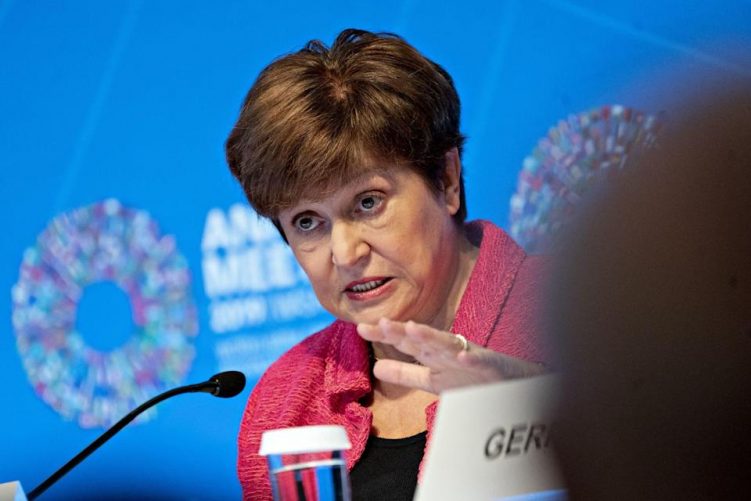International Monetary Fund (IMF) chief Kristalina Georgieva said on Wednesday that China should direct its policies more towards stimulating consumption as it faces an economic slowdown prompted by renewed Covid-19 lockdowns.
Georgieva said China had ample fiscal and monetary policy space to counteract the effects of the slowdown, but it would be better to stimulate consumption.
“What we see in China is that consumption is falling short, it is not recovering as strongly as necessary,” the IMF managing director told a news conference at the IMF and World Bank spring meetings.
“So rather than moving money into public investments, move it into the pockets of people, so there is more dynamism coming from a consumption boom,” she added. “Stronger policy efforts in the property sector can also help secure a balanced recovery.”
Later, addressing the Boao Forum for Asia, Georgieva warned that a prolonged slowdown could have a large spillover on countries around the world.
But she said: “Fortunately, China [can] provide macroeconomic policy support, including shifting the focus towards vulnerable households to strengthen consumption, which can also help support China’s climate goals by steering economic activity to lower-carbon sectors.”
Shanghai reported on Wednesday no new cases of Covid-19 outside quarantined areas in two districts, raising hopes that the tide was turning in its battle against the epidemic, with some factories around the city making a gradual return to work.
Georgieva also called on Beijing to open its purse strings wider for low-income countries.
“Since 2015 the share of low-income countries at or near debt distress has doubled, from 30% to 60%,” she said.
“For many, debt restructuring is a pressing priority. We need large creditors, like China, and the private sector, to urgently step up their participation.”
- George Russell, with Reuters
READ MORE:
IMF Says Any Loan to Sri Lanka Requires Debt Sustainability
IMF Study Says China Has More Say Over Poorest Nations’ Debt
IMF Cuts Japan Growth Forecast as Ukraine Crisis Weighs
























